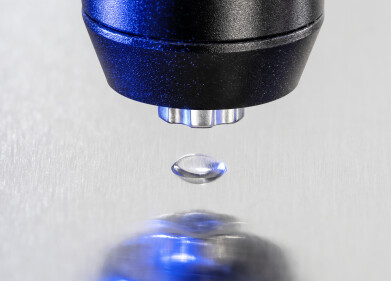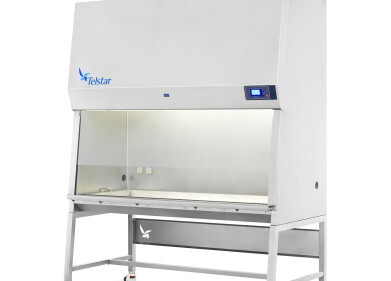Laboratory Products
Larger and fewer radiotherapy treatments benefit breast cancer patients, study shows
Dec 10 2012
A lower dose of radiotherapy provided in fewer, larger treatments is just as beneficial as delivering the international standard dose, a new study has determined.
The follow-up results of a major Cancer Research UK trial presented at the 2012 CTRC-AACR San Antonio Breast Cancer Symposium revealed such an approach could lead to fewer trips to hospitals and cost savings for health services.
Almost 4,500 women participated in the START trials, which were organised by the Clinical Trials and Statistics Unit in London and funded by Cancer Research UK, the Medical Research Council and the Department of Health.
It was found that very few women experience a relapse of cancer within the same breast irrespective of whether they have had a shorter course of post-surgery radiotherapy or not.
To increase their understanding further, the experts are now looking at beginning a Phase III randomised controlled trial of 4,000 women entitled FAST-FORWARD, which aims to compare the 15-dose course of treatment with one consisting of five doses by using laboratory equipment.
Kate Law, Cancer Research UK’s director of clinical research, said: "What’s really exciting is that, as a result of this trial, women are already benefiting from the added physical and emotional wellbeing of needing fewer hospital visits for their treatment.
"Minimising the long-term side effects of treatment is becoming increasingly important as cancer patients live longer. We hope that women around the world will now be able to benefit from this improved standard of care."
Chief investigator Professor John Yarnold, professor of clinical oncology at The Institute of Cancer Research (ICR) and honorary consultant at The Royal Marsden NHS Foundation Trust, also commented on the findings, noting that "less can be more" when it comes to breast cancer radiotherapy.
"Three weeks of radiotherapy is as good as five weeks – as well as being more convenient and less tiring for patients and cheaper for the health service," Mr Yarnold explained.
He added that the results provide a "very important reassurance" that the shorter course of treatment is the best option for patients.
Posted by Fiona Griffiths
Digital Edition
International Labmate 49.6 - Sept 2024
September 2024
Chromatography Articles - HPLC gradient validation using non-invasive flowmeters Mass Spectrometry & Spectroscopy Articles - From R&D to QC, making NMR accessible for everyone: Putting NMR...
View all digital editions
Events
Oct 06 2024 Liverpool, UK
Oct 08 2024 Gothenburg, Sweden
Oct 09 2024 Birmingham, UK
Oct 09 2024 NEC, Birmingham, UK
Oct 15 2024 Milan, Italy



.jpg)














